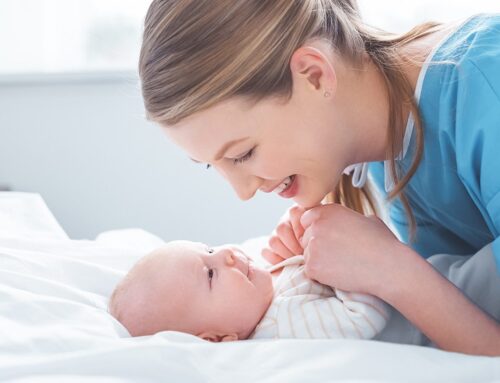Caring for a newborn can be both exciting and challenging, especially for first-time parents. As they navigate this new journey, parents often encounter a wealth of advice and information from various sources. However, it’s important to separate fact from fiction when it comes to newborn care. In this blog post, we will debunk four common myths about newborn care, providing accurate information to help parents make informed decisions and provide the best care for their little ones.
1. The Myth: More Milk Is Better
Parents are frequently concerned about whether their newborn is getting enough to eat. They don’t often think, on the other hand, about whether they are feeding their baby too much. Proper nutrition is important for sleep and growth, but too much can lead to a myriad of problems, including discomfort, digestive problems, and unhealthy relationships with eating. Babies are surprisingly good monitors of whether they are hungry or not. Feed until your baby is done, not until you think it’s had enough.
2. The Myth: Hearing Loss Can’t Be Detected Early
There’s an incorrect belief that babies don’t need to have their hearing checked soon after birth because their ears need time to develop. The truth is that through technology, an infant’s hearing health can be known right away. According to the National Institute of Health, within a month of birth, 95% of babies undergo a hearing test. Considering that one to three infants have some level of hearing loss, this information is critical upfront.
3. The Myth: Shoes are Important for Newborns
It’s easy to look at newborn feet and think about how delicate they are. Does proper newborn care include putting tiny feet into shoes? No. Babies’ feet need to be free to move around so that bones and muscles can strengthen. It’s recommended that if a foot covering is needed for an outdoor adventure, infants should sport socks or light booties to allow the feet to have space.
4. The Myth: Newborns Should Sleep on Their Stomachs
One prevailing myth is that placing a newborn to sleep on their stomach reduces the risk of choking. However, this is untrue and poses a significant safety hazard. The American Academy of Pediatrics recommends that infants sleep on their backs to reduce the risk of sudden infant death syndrome (SIDS). Back sleeping is the safest sleep position for newborns and reduces the likelihood of respiratory issues.
As parents, it’s crucial to stay well-informed and rely on evidence-based information when caring for your newborn. Trustworthy resources, healthcare providers, and parenting classes can provide valuable guidance and support. By staying informed and debunking myths, you can provide the best care for your precious little one and enjoy this beautiful journey of parenthood. Call Pediatrix today for more information or guidance on newborn care.





